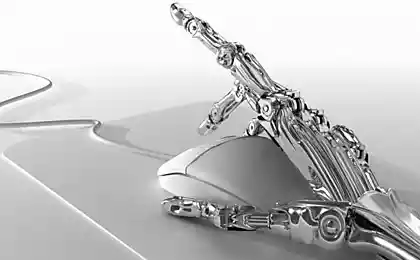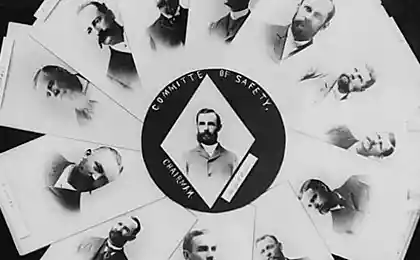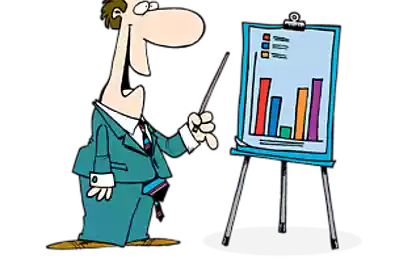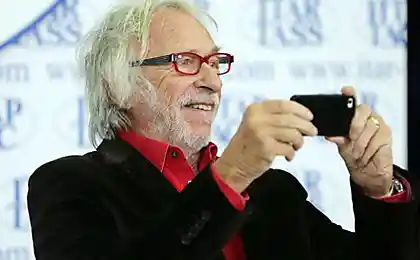1037
Pierre Bourdieu Public opinion does not exist
First of all I would like to clarify that my intention is not a simple and mechanical exposure of the public opinion polls, but the attempt rigorous analysis of their functioning and purpose. This assumes that you will be called into question on three postulates, implicitly involved in the surveys.
So, every opinion poll supposes that everyone can have an opinion , or in other words that the production of opinions available to everyone. This first postulate I'll argue, at the risk of hurting someone's naive democratic sensibilities.
The second postulate suggests that all opinions are important. I think it is possible to prove that this is not the case, and that the fact of summation of opinions, which have not the same real power, leads to the production of meaningless artifacts.
The third postulate is manifest hidden: the simple fact that everyone asks the same question, suggests the hypothesis of the existence of a consensus problem, that is the agreement that the issues deserved to be specified.

These three postulates determine, in my opinion, a series of deformations that can be detected, even if strictly fulfilled all methodological requirements in the course of data collection and analysis.
Opinion polls often make criticisms of a technical nature. For example, questioning the representativeness of the samples. I believe that in the present state of the funds used by the service of studying of public opinion, this objection is utterly unfounded.
There have also been accusations that the polls are tricky questions or resort to tricks in their wording. It is already rather often it turns out that the answer is derived from the shape of the building matter. For example, violating the basic requirement of drafting a questionnaire requiring "leave uniform" all possible answers, often to questions or proposed answers exclude one of the possible positions, or the same offer several times in different wordings the same position.
There are diverse gimmicks of this kind, and it would be interesting to speculate about the social conditions of their appearance. For the most part they are associated with the environment that supplied the drafters of the questionnaires. But mostly, tricks occur because the problems, which are working in the Institute for the study of public opinion, subject to the inquiries of a special type.
Thus, the analysis tools of large national survey about the French education system, we have raised the archives of a number of bureaus this service, all issues concerning education. It turned out that more than 200 of them were asked in the surveys conducted after the events of may 1968, and only 20 in the period from 1960 to 1968, This means that the subject matter for the study which is taken by such organization that is deeply connected to the environment and subject to a certain type of social order. The issue of education, for example, could be supplied by the Institute of public opinion only when it became a political issue. This immediately shows the difference that separates these institutions from the centers of scientific research, the issues which are emerging, if not in heaven, then, in any case, at the much greater distancing from the social order in its direct and immediate form.
A brief statistical analysis of the asked questions showed us that most of them were directly related to the political concerns of "regular politicians". If we decided to have some fun playing truth or dare and I would ask you to write on five of the most important, in your opinion, issues in education, we undoubtedly would have received a list of significantly different from what we have discovered during inventory of the questions really asked in the surveys of public opinion. A variation of the question "do I Need to allow politics in school?" was posed very often, whereas the questions "do I Need to change program?" or "do I Need to change the method of conveying the content?" were asked very rarely. Same with the question "do we Need teacher development?" and other important, albeit from a different point of view.
The proposed public opinion research perspective is subordinated to political interests, and this greatly affects both the value of responses and the importance given to publication of results.
Probing public opinion in its present form is a tool of political action; it is perhaps the most important function is in instilling the illusion that public opinion exists as an imperative derived solely by adding up individual opinions: and in the introduction of the idea that there is a sort of average of opinions or the average opinion.
"Public opinion" displayed on front pages of Newspapers in the form of interest ("60% of French people approve of the ..."), is simply the purest artifact. Its purpose is to hide the fact that the state of public opinion at the moment, the essence of the system of forces, stresses and that there is nothing more inadequate than to Express the state of public opinion using the percentage.
It is known that any use of force is accompanied by a discourse aimed at the legitimation of the power of him who uses it. You could even say that the essence of any relationship of force is the manifestation of all of his powers only to the extent that it is relevant as such remains hidden. Simply put, the politician is the one who says, "God with us." The equivalent of the expression "God with us" became a "Public opinion is with us."
Such is the fundamental effect of public opinion polls: to approve the idea of the existence of a unanimous public opinion, i.e. to legitimate certain policies and to consolidate relations of forces, on which it is based or which make it possible.
Expressing from the very beginning what I wanted to say in conclusion, I will try at least in a General way to designate those techniques with which the effect of the consensus.
The first method, the starting point with the postulate that all people should have an opinion, is to disregard the position of "refuse to answer". For example, you ask: "do You Approve of the government of the Pompidou?" In the result register: 20% "Yes" and 50% "no" and 30% "no answer". You can say: "the Proportion of people who do not approve the government exceeds the share of those who approve, and in the rest 30% is not responding". But you can count the percentage of "approve" and "do not approve", omitting the "not responding". This simple choice becomes a theoretical admission of fantastic significance, as I would like to speculate.
Delete "not responding" means to do the same thing that is done at the elections during the counting of votes when there are empty, blank ballots: it means the imposition of the public opinion polls hidden philosophy of voting.
If you look closely, it is found that the percentage giving response to the questionnaire is higher overall among women than among men, and that the difference on this account the greater, the more questions are in fact political.
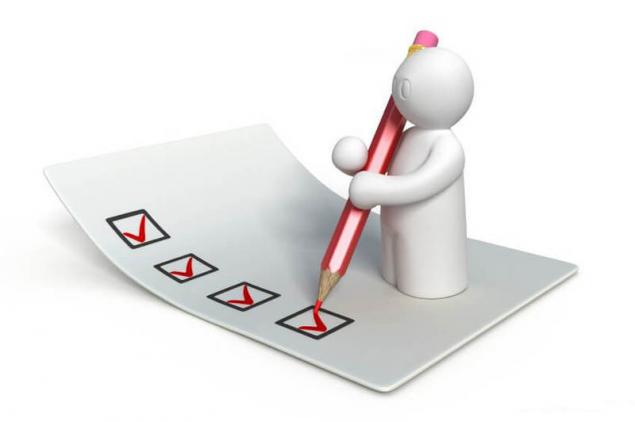
Another observation: the closer the survey question is associated with the problems of knowledge and cognition, the greater the discrepancy in the proportion of "not responding" between more educated and less educated. Conversely, when the questions relate to ethical issues, for example, "do I Need to be strict with the children?", the percentage of persons giving the response to them, slightly varies depending on the level of education of respondents.
The following observation: the more contentious issue concerns the problems for a host of contradictions (as with the question of events in Czechoslovakia for voting for the Communists), the more voltage raises the question for any specific category of people, the more among them will encounter a "not responding". Therefore, a simple analysis of statistical data on "not responding" gives information about the significance of this issue and also about the categories of respondents. Thus information is defined as intended in this category likely to have an opinion and as the conditional probability to have a favorable or unfavorable opinion.
Scientific analysis of opinion polls shows that practically there are no problems in an "omnibus"; there is no such issue that would not be Pereselkov depending on the interests of those whom he is set. This is why the first imperative for researchers to understand what are the different categories of respondents, in their opinion, the answer.
One of the most harmful "effects study" public opinion consists in the fact that people were required to answer questions that they are not asked. Take, for example, questions that focus on moral issues, whether we are talking about the severity of the parents, the relationship between teachers and pupils, policy or indirect pedagogy, etc. the more They are perceived as ethical problems, the lower people are in the social hierarchy, but these issues can be political issues for people of higher classes. Thus, one of the effects of the survey lies in the transformation of ethical responses to political answers by simple imposition issues.
In fact, there are many ways in which you can predetermine the answer. There is first of all that can be called political competence by analogy with the definition of policy that is both arbitrary and legitimate, that is, dominant and covert. This political competence does not have a comprehensive distribution. It varies grosso modo (in General, approximately, lat. accordingly, the level of education).
In other words, the probability to have an opinion on all matters involving political knowledge, sufficiently comparable to the probability of being a regular at the museums. Found a fantastic variation: where a student belonging to one of the leftist movement, distinguishes between the 15 political trends, more left-wing than the United socialist party, for the frame of an average link there is nothing. From full scale political spectrum (extreme left, left, left centrists, the centrists and right centrists, the right, etc.) that "political science" uses as a matter of course, some social groups use only a small sector of the extreme left directions, others — only "centre", others use the entire scale as a whole. Ultimately the election is a connection absolutely diverse spaces, mechanical addition of people that measures in meters, with those who measure in kilometers, or better yet, people using a scale with marks from 0 to 20 points, and those who are limited to the period from the 9th to the 11th grade. Competence is measured, among other things, a subtlety of perception (the same in the field of aesthetics, when someone can distinguish five or six successive styles of one artist).
This comparison can continue. In the case of aesthetic perception above all should be respected the condition conducive to perception: it is necessary that people talked about a particular work of art as a work of art in General; then, perceiving it as a work of art, it is necessary that they be in possession of the category of perception of its composition, structure, etc.
Imagine the question formulated thus: "are You a supporter or indirect policy of education?". For some it might turn into a political issue, a pertinent insight into the relationship between parents and children to the views of society, for others it's a purely moral question.
So, the questionnaire is structured in such a way that people ask, think or do not think they are for a policy of strikes, participation in pop festivals, growing long hair, etc., detects a very serious variation depending on the social group.
The first condition for an adequate response to a political issue is the ability to present it as political; the second — the ability, presenting the issue as political, to apply a purely political category, which in turn may be more or less adequate, more or less sophisticated, etc.
These are the specific conditions of the production of opinions, and public opinion polls suggest that these conditions everywhere and uniformly performed on the basis of the first postulate, in which all people can produce the opinion.
The second principle, according to which people can make an opinion, that's what I call a "class ethos" (not to be confused with "class ethics"), i.e. the system of latent values, interiorizing people from childhood, in accordance with which they produce answers to various questions.
The opinions that people share, when leaving the stadium after a football match between teams of Roubaix and Valenciennes, its coherence and its logic are bound to the ethos of the class.
Lots of answers, considered the responses regarding the policy actually is made in accordance with the class ethos, and thus these answers can acquire a completely different meaning when being interpreted in the political sphere.
Here I must refer to the sociological tradition circulated primarily among some sociologists, politicians in the United States who speak usually about the conservatism and authoritarianism of the people's classes. These statements are based on the comparison obtained in different countries data research or elections, which show that whenever, in whatever country, when polled people's classes about issues relating to power relations, personal freedom, press freedom, etc., their responses are more "authoritarian" than the responses of other classes. It makes a General conclusion that there is a conflict between democratic values (by which I mean — Lipset — it is about American democratic values) and values interiorizarse people's classes, values, authoritarian and repressive type. Hence derive a sort of eschatological vision: because the thirst for oppression, authoritarianism, etc. associated with low income, low education, etc., it is necessary to raise the standard of living, level of education, and thus we will create good citizens of American democracy.
In my opinion, questioned the need to put the value of the answers to some questions. Assume a set of questions like: "do You Approve of the equality of the sexes?", "Do You approve of sexual freedom of the spouses?", "Do You approve nerepressivnyh education?", "Do You approve of the new society?", etc.
Now imagine a block of questions of the type: "Should teachers go on strike, if their position is under threat?", "Whether teachers are to be in solidarity with other civil servants in the period of social conflicts?", etc. For these two sets of questions are answered, the structure of their distribution is the opposite depending on the social class of the respondents.
First, a number of issues affecting some type of innovation in social relations, in the symbolic form of social relations, is all the more the positive responses, the higher the Respondent's position in the social hierarchy and in the hierarchy by level of education. Conversely, issues affecting real change in the relations of force between classes, cause the answers even more disapproving than the above, the Respondent stands in the social hierarchy.
Thus, the statement: "Popular classes tend to the repression of" neither true nor false. It is true to the extent that people's classes tend to show themselves much more rigoristic than other social classes, in the collision complex problems that affect family morality, the relationship between the generations or sexes.
On the contrary, in terms of political structure, which puts at stake the preservation or change of the social order, not just save and edit the relationship between individuals, the popular classes to a much greater extent approve of the innovation that is changing social structures.
You can see some of delivered in may 1968, the problems, and often delivered poorly, the conflict between the Communist party and gosystem are directly related to the Central problem which I am here trying to raise the problem of the nature of the responses, that is the principle upon which these answers are produced.
Made me the juxtaposition of the two clusters actually leads to the juxtaposition of the two principles of the production of opinion: the principle of the properly political and ethical principle, the problem of the conservatism of the popular classes — the result of ignoring this distinction.
The effect of imposing problems, the effect produced by any poll, and just any issue of a political nature (starting with the election of the company), is the result of the study of public opinion not asking the right questions, which arise in reality, in front of all the respondents, and that the interpretation of the answers is carried out regardless of issues, is really reflected in the responses of different categories of respondents.

Thus, the dominant perspective, the idea of which gives a list of the questions asked by the institutions of the polls in the last two years, i.e. the issues of interest mainly to the powers that be who want to be informed about the means of organizing their political action, is very unevenly assimilated by different social classes. And that is very important, these latter are more or less inclined to develop centerproperty.
Regarding the televised debates between servnoy Schreiber and Giscard D'estaing, one of the institutions of public opinion research asked questions like: "what is successful learning in school and University: talents, intelligence, hard work, rewards for success?" The responses provide incorrect information (those who reported not aware of this report) on the understanding of the different social classes of the laws of hereditary translation of cultural capital: belief in the myths about giftedness, about the promotion at the school, the school of justice, on the validity of the distribution of posts in accordance with the diplomas and titles, etc., are very strong in people's classes. Centerproperty can exist for a few intellectuals, but it is devoid of power, even being picked up by a number of parties and groups.
Scientific truth is subject to the same laws of propagation of that ideology. Scientific judgment is like a bull on the regulation of births, which will convert only the already converted.
In opinion polls the idea of objectivity associated with the fact of formulating questions in the most neutral terms in order to equalize the chances of all possible answers. Actually, the poll would have been closer to what happens in reality, if in full violation of the rules of "objectivity" provided respondents the means to put themselves in such conditions as they actually are in reality, ie would appeal to already formulated opinions. And if instead of asking, for example, "There are people who approve of birth control, there are others disapproving. And You Are?", would be asked a series of positions, distinct groups, those in positions of trust at the formation and dissemination of opinions, people could be determined relative to the already established answers.
Usually talk about the "choice of position": the position is already provided and choose. Meanwhile, do not choose them randomly. Opt for the positions to be elected which is inclined in accordance with the position already occupied in some field. Rigorous analysis aimed at explaining the relations between the structure of the generated positions and the structure of the field objectively their positions.
If the polls are bad catches potential state opinions, or rather, his movement, the reason, among others, a completely artificial environment in which the views of the people surveys register. In an environment where public opinion is formed, especially in situations of crisis, people are facing-formed opinions before the opinions maintained by individual groups, and thus to choose between opinions clearly means to choose between groups.
This is the principle effect of the politicization of manufactured crisis: we have to choose between groups, defined politically, and increasingly determine the choice of the explicitly political principles.
Indeed, I think it is important that the poll interprets this as the simple sum of individual opinions, the collection of which takes place in a situation similar to the procedure of secret voting, when an individual goes to the cabin, to without witness, in isolation to Express their separate opinion. In a real situation the opinions become, and the ratio of views — power conflicts between groups.
Another pattern detected in the course of this assessment: opinions on the issue that the more interested in it. Thus, the share of answers to questions about the system of education is very associated with the degree of proximity of respondents to the system, and the likelihood that opinion varies depending on the probability to have the right to dispose of the fact, on which the opinion is expressed. The opinion expressed itself spontaneously — it is the judgment of people, whose opinion is said to have weight.
If the Minister of national education acted in accordance with public opinion polls (or at least on the basis of superficial acquaintance with them), he would not have done so as it enters in fact, acting as a politician, ie based on the received phone call, visit such and such a trade unionist, so-and-so to the Dean, etc. In fact he does depending on the actual existing balance of forces of public opinion that affect its perception only to the extent that they have the power, and to the extent what they have the power of being mobilized.
That's why, referring to the foresight of what will become the University in the next ten years, I guess that mobilized public opinion is a better basis. Whatever it was, a fact which shows "not responding", the fact that predisposition a number of categories do not reach the status of public opinion, in other words formed statements, claiming the connectivity of the expression, to public outcry, recognition, etc., should not give grounds for conclusion that the people who have no opinions will be in the conditions of crisis to choose randomly. If the problem is constituted for them politically (the problem of wages, the rhythm of labor for the workers), they will make a choice in terms of political jurisdiction; if it goes about the problem, constituional for them politically (and repressive industrial relations), or under the Constitution, they will be the slave system deeply subconscious predispositions, which directs their choice in a variety of areas, from the aesthetics or sports to economic preferences.
Traditional public opinion survey simultaneously ignores and pressure groups, and the possible disposition that may not be expressed in the form of explicit statements. That's why he is not able to provide any reasonable prediction of what will happen in the conditions of crisis.
Assume that we are talking about the problems of the education system. You can ask the question: "What do You think about the politics of Edgar Faure?" (With the name of Edgar Faure, Minister of national education, related reform in the democratization and modernization of higher education of France that followed the socio-political events of may 1968 a law was adopted by the National Assembly in October of the same year. Approx. transl.)
This question is very close to the question of the ballot in the sense that at night all cats are grey: all agree grosso modo (not knowing something), we all know that meant a unanimous vote on the law of Edgar Faure in the National Assembly. Then ask: "do You Approve of the admission policy in the school?" Here already reveals a clear distinction in the answers. The same thing noted, when you ask the question, "Can teachers strike?" In this case, the representatives of the popular classes, bringing their specific political competence, know what to say. You can also ask: "do I Need to change the program?", "Do You approve of permanent control?", "Do You approve the inclusion of parents of students in pedagogical tips?", "Do You approve the abolition of the competition for the agrégation degree?", etc. So, all these questions present in the question: "do You Approve of Edgar Faure?" and answering it, people make choices simultaneously on set of problems, making them a good questionnaire ought to consist of no less than 60 questions, and each of them had variations in the responses in all directions. In one case, in the distribution of responses would be positive Association with the position in the social hierarchy, in the other — negative, in some cases, the relationship is very strong, some others weak or even absent.
It is sufficient to understand that the elections represent a limiting case of such questions as "do You Approve of Edgar Faure?", to understand: in political sociology might note the following. The relationship observed is usually almost all fields of social practice between social class and the activities or opinions of people, very weak in the case of electoral behavior. And this connection is so weak that some did not hesitate, and make a conclusion about the absence of any connection between social class and the fact of voting for the "right" or "left". If you keep in mind that the election of one syncretic question cover what bearable to grasp only two hundred questions, with the answers alone will be measured in centimeters and the other kilometers that the strategy of the candidates is based on vague formulation of questions and using glossing over differences in order to win the votes of wavering, and many other implications, you will come to the conclusion that, apparently, the traditional question of the relationship between voting and social class should be put the opposite way.
Apparently, you should ask yourself, how is it that this relationship, albeit weak, in spite of everything, state. And ask yourself about the purpose of the electoral system — the tool that his logic tends to smooth out conflicts and differences. What is certain, is the fact that the study of the functioning of public opinion polls allows you to get an idea about the way in which acts a special type of public opinion poll as elections, as well as an idea of the result they produce.
So I wanted to tell you that public opinion does not exist, at least in the form in which it is present to all who are interested in asserting its existence. I was talking about that there:
The definition of opinion — not my opinion. This is just an explanation of the definitions used in public opinion polls when people are asked to choose a position among the formulated opinions, and when by mere statistical aggregation produced therefore of opinion produce an artifact, which is public opinion. Public opinion in the importance that is hidden, it is given by those involved in surveys or those who use their results, only that, to clarify, public opinion does not exist.published
Author: Pierre Bourdieu
P. S. And remember, only by changing their consumption — together we change the world! ©
Source: monocler.ru/burde-obshhestvennoe-mnenie/
So, every opinion poll supposes that everyone can have an opinion , or in other words that the production of opinions available to everyone. This first postulate I'll argue, at the risk of hurting someone's naive democratic sensibilities.
The second postulate suggests that all opinions are important. I think it is possible to prove that this is not the case, and that the fact of summation of opinions, which have not the same real power, leads to the production of meaningless artifacts.
The third postulate is manifest hidden: the simple fact that everyone asks the same question, suggests the hypothesis of the existence of a consensus problem, that is the agreement that the issues deserved to be specified.

These three postulates determine, in my opinion, a series of deformations that can be detected, even if strictly fulfilled all methodological requirements in the course of data collection and analysis.
Opinion polls often make criticisms of a technical nature. For example, questioning the representativeness of the samples. I believe that in the present state of the funds used by the service of studying of public opinion, this objection is utterly unfounded.
There have also been accusations that the polls are tricky questions or resort to tricks in their wording. It is already rather often it turns out that the answer is derived from the shape of the building matter. For example, violating the basic requirement of drafting a questionnaire requiring "leave uniform" all possible answers, often to questions or proposed answers exclude one of the possible positions, or the same offer several times in different wordings the same position.
There are diverse gimmicks of this kind, and it would be interesting to speculate about the social conditions of their appearance. For the most part they are associated with the environment that supplied the drafters of the questionnaires. But mostly, tricks occur because the problems, which are working in the Institute for the study of public opinion, subject to the inquiries of a special type.
Thus, the analysis tools of large national survey about the French education system, we have raised the archives of a number of bureaus this service, all issues concerning education. It turned out that more than 200 of them were asked in the surveys conducted after the events of may 1968, and only 20 in the period from 1960 to 1968, This means that the subject matter for the study which is taken by such organization that is deeply connected to the environment and subject to a certain type of social order. The issue of education, for example, could be supplied by the Institute of public opinion only when it became a political issue. This immediately shows the difference that separates these institutions from the centers of scientific research, the issues which are emerging, if not in heaven, then, in any case, at the much greater distancing from the social order in its direct and immediate form.
A brief statistical analysis of the asked questions showed us that most of them were directly related to the political concerns of "regular politicians". If we decided to have some fun playing truth or dare and I would ask you to write on five of the most important, in your opinion, issues in education, we undoubtedly would have received a list of significantly different from what we have discovered during inventory of the questions really asked in the surveys of public opinion. A variation of the question "do I Need to allow politics in school?" was posed very often, whereas the questions "do I Need to change program?" or "do I Need to change the method of conveying the content?" were asked very rarely. Same with the question "do we Need teacher development?" and other important, albeit from a different point of view.
The proposed public opinion research perspective is subordinated to political interests, and this greatly affects both the value of responses and the importance given to publication of results.
Probing public opinion in its present form is a tool of political action; it is perhaps the most important function is in instilling the illusion that public opinion exists as an imperative derived solely by adding up individual opinions: and in the introduction of the idea that there is a sort of average of opinions or the average opinion.
"Public opinion" displayed on front pages of Newspapers in the form of interest ("60% of French people approve of the ..."), is simply the purest artifact. Its purpose is to hide the fact that the state of public opinion at the moment, the essence of the system of forces, stresses and that there is nothing more inadequate than to Express the state of public opinion using the percentage.
It is known that any use of force is accompanied by a discourse aimed at the legitimation of the power of him who uses it. You could even say that the essence of any relationship of force is the manifestation of all of his powers only to the extent that it is relevant as such remains hidden. Simply put, the politician is the one who says, "God with us." The equivalent of the expression "God with us" became a "Public opinion is with us."
Such is the fundamental effect of public opinion polls: to approve the idea of the existence of a unanimous public opinion, i.e. to legitimate certain policies and to consolidate relations of forces, on which it is based or which make it possible.
Expressing from the very beginning what I wanted to say in conclusion, I will try at least in a General way to designate those techniques with which the effect of the consensus.
The first method, the starting point with the postulate that all people should have an opinion, is to disregard the position of "refuse to answer". For example, you ask: "do You Approve of the government of the Pompidou?" In the result register: 20% "Yes" and 50% "no" and 30% "no answer". You can say: "the Proportion of people who do not approve the government exceeds the share of those who approve, and in the rest 30% is not responding". But you can count the percentage of "approve" and "do not approve", omitting the "not responding". This simple choice becomes a theoretical admission of fantastic significance, as I would like to speculate.
Delete "not responding" means to do the same thing that is done at the elections during the counting of votes when there are empty, blank ballots: it means the imposition of the public opinion polls hidden philosophy of voting.
If you look closely, it is found that the percentage giving response to the questionnaire is higher overall among women than among men, and that the difference on this account the greater, the more questions are in fact political.

Another observation: the closer the survey question is associated with the problems of knowledge and cognition, the greater the discrepancy in the proportion of "not responding" between more educated and less educated. Conversely, when the questions relate to ethical issues, for example, "do I Need to be strict with the children?", the percentage of persons giving the response to them, slightly varies depending on the level of education of respondents.
The following observation: the more contentious issue concerns the problems for a host of contradictions (as with the question of events in Czechoslovakia for voting for the Communists), the more voltage raises the question for any specific category of people, the more among them will encounter a "not responding". Therefore, a simple analysis of statistical data on "not responding" gives information about the significance of this issue and also about the categories of respondents. Thus information is defined as intended in this category likely to have an opinion and as the conditional probability to have a favorable or unfavorable opinion.
Scientific analysis of opinion polls shows that practically there are no problems in an "omnibus"; there is no such issue that would not be Pereselkov depending on the interests of those whom he is set. This is why the first imperative for researchers to understand what are the different categories of respondents, in their opinion, the answer.
One of the most harmful "effects study" public opinion consists in the fact that people were required to answer questions that they are not asked. Take, for example, questions that focus on moral issues, whether we are talking about the severity of the parents, the relationship between teachers and pupils, policy or indirect pedagogy, etc. the more They are perceived as ethical problems, the lower people are in the social hierarchy, but these issues can be political issues for people of higher classes. Thus, one of the effects of the survey lies in the transformation of ethical responses to political answers by simple imposition issues.
In fact, there are many ways in which you can predetermine the answer. There is first of all that can be called political competence by analogy with the definition of policy that is both arbitrary and legitimate, that is, dominant and covert. This political competence does not have a comprehensive distribution. It varies grosso modo (in General, approximately, lat. accordingly, the level of education).
In other words, the probability to have an opinion on all matters involving political knowledge, sufficiently comparable to the probability of being a regular at the museums. Found a fantastic variation: where a student belonging to one of the leftist movement, distinguishes between the 15 political trends, more left-wing than the United socialist party, for the frame of an average link there is nothing. From full scale political spectrum (extreme left, left, left centrists, the centrists and right centrists, the right, etc.) that "political science" uses as a matter of course, some social groups use only a small sector of the extreme left directions, others — only "centre", others use the entire scale as a whole. Ultimately the election is a connection absolutely diverse spaces, mechanical addition of people that measures in meters, with those who measure in kilometers, or better yet, people using a scale with marks from 0 to 20 points, and those who are limited to the period from the 9th to the 11th grade. Competence is measured, among other things, a subtlety of perception (the same in the field of aesthetics, when someone can distinguish five or six successive styles of one artist).
This comparison can continue. In the case of aesthetic perception above all should be respected the condition conducive to perception: it is necessary that people talked about a particular work of art as a work of art in General; then, perceiving it as a work of art, it is necessary that they be in possession of the category of perception of its composition, structure, etc.
Imagine the question formulated thus: "are You a supporter or indirect policy of education?". For some it might turn into a political issue, a pertinent insight into the relationship between parents and children to the views of society, for others it's a purely moral question.
So, the questionnaire is structured in such a way that people ask, think or do not think they are for a policy of strikes, participation in pop festivals, growing long hair, etc., detects a very serious variation depending on the social group.
The first condition for an adequate response to a political issue is the ability to present it as political; the second — the ability, presenting the issue as political, to apply a purely political category, which in turn may be more or less adequate, more or less sophisticated, etc.
These are the specific conditions of the production of opinions, and public opinion polls suggest that these conditions everywhere and uniformly performed on the basis of the first postulate, in which all people can produce the opinion.
The second principle, according to which people can make an opinion, that's what I call a "class ethos" (not to be confused with "class ethics"), i.e. the system of latent values, interiorizing people from childhood, in accordance with which they produce answers to various questions.
The opinions that people share, when leaving the stadium after a football match between teams of Roubaix and Valenciennes, its coherence and its logic are bound to the ethos of the class.
Lots of answers, considered the responses regarding the policy actually is made in accordance with the class ethos, and thus these answers can acquire a completely different meaning when being interpreted in the political sphere.
Here I must refer to the sociological tradition circulated primarily among some sociologists, politicians in the United States who speak usually about the conservatism and authoritarianism of the people's classes. These statements are based on the comparison obtained in different countries data research or elections, which show that whenever, in whatever country, when polled people's classes about issues relating to power relations, personal freedom, press freedom, etc., their responses are more "authoritarian" than the responses of other classes. It makes a General conclusion that there is a conflict between democratic values (by which I mean — Lipset — it is about American democratic values) and values interiorizarse people's classes, values, authoritarian and repressive type. Hence derive a sort of eschatological vision: because the thirst for oppression, authoritarianism, etc. associated with low income, low education, etc., it is necessary to raise the standard of living, level of education, and thus we will create good citizens of American democracy.
In my opinion, questioned the need to put the value of the answers to some questions. Assume a set of questions like: "do You Approve of the equality of the sexes?", "Do You approve of sexual freedom of the spouses?", "Do You approve nerepressivnyh education?", "Do You approve of the new society?", etc.
Now imagine a block of questions of the type: "Should teachers go on strike, if their position is under threat?", "Whether teachers are to be in solidarity with other civil servants in the period of social conflicts?", etc. For these two sets of questions are answered, the structure of their distribution is the opposite depending on the social class of the respondents.
First, a number of issues affecting some type of innovation in social relations, in the symbolic form of social relations, is all the more the positive responses, the higher the Respondent's position in the social hierarchy and in the hierarchy by level of education. Conversely, issues affecting real change in the relations of force between classes, cause the answers even more disapproving than the above, the Respondent stands in the social hierarchy.
Thus, the statement: "Popular classes tend to the repression of" neither true nor false. It is true to the extent that people's classes tend to show themselves much more rigoristic than other social classes, in the collision complex problems that affect family morality, the relationship between the generations or sexes.
On the contrary, in terms of political structure, which puts at stake the preservation or change of the social order, not just save and edit the relationship between individuals, the popular classes to a much greater extent approve of the innovation that is changing social structures.
You can see some of delivered in may 1968, the problems, and often delivered poorly, the conflict between the Communist party and gosystem are directly related to the Central problem which I am here trying to raise the problem of the nature of the responses, that is the principle upon which these answers are produced.
Made me the juxtaposition of the two clusters actually leads to the juxtaposition of the two principles of the production of opinion: the principle of the properly political and ethical principle, the problem of the conservatism of the popular classes — the result of ignoring this distinction.
The effect of imposing problems, the effect produced by any poll, and just any issue of a political nature (starting with the election of the company), is the result of the study of public opinion not asking the right questions, which arise in reality, in front of all the respondents, and that the interpretation of the answers is carried out regardless of issues, is really reflected in the responses of different categories of respondents.

Thus, the dominant perspective, the idea of which gives a list of the questions asked by the institutions of the polls in the last two years, i.e. the issues of interest mainly to the powers that be who want to be informed about the means of organizing their political action, is very unevenly assimilated by different social classes. And that is very important, these latter are more or less inclined to develop centerproperty.
Regarding the televised debates between servnoy Schreiber and Giscard D'estaing, one of the institutions of public opinion research asked questions like: "what is successful learning in school and University: talents, intelligence, hard work, rewards for success?" The responses provide incorrect information (those who reported not aware of this report) on the understanding of the different social classes of the laws of hereditary translation of cultural capital: belief in the myths about giftedness, about the promotion at the school, the school of justice, on the validity of the distribution of posts in accordance with the diplomas and titles, etc., are very strong in people's classes. Centerproperty can exist for a few intellectuals, but it is devoid of power, even being picked up by a number of parties and groups.
Scientific truth is subject to the same laws of propagation of that ideology. Scientific judgment is like a bull on the regulation of births, which will convert only the already converted.
In opinion polls the idea of objectivity associated with the fact of formulating questions in the most neutral terms in order to equalize the chances of all possible answers. Actually, the poll would have been closer to what happens in reality, if in full violation of the rules of "objectivity" provided respondents the means to put themselves in such conditions as they actually are in reality, ie would appeal to already formulated opinions. And if instead of asking, for example, "There are people who approve of birth control, there are others disapproving. And You Are?", would be asked a series of positions, distinct groups, those in positions of trust at the formation and dissemination of opinions, people could be determined relative to the already established answers.
Usually talk about the "choice of position": the position is already provided and choose. Meanwhile, do not choose them randomly. Opt for the positions to be elected which is inclined in accordance with the position already occupied in some field. Rigorous analysis aimed at explaining the relations between the structure of the generated positions and the structure of the field objectively their positions.
If the polls are bad catches potential state opinions, or rather, his movement, the reason, among others, a completely artificial environment in which the views of the people surveys register. In an environment where public opinion is formed, especially in situations of crisis, people are facing-formed opinions before the opinions maintained by individual groups, and thus to choose between opinions clearly means to choose between groups.
This is the principle effect of the politicization of manufactured crisis: we have to choose between groups, defined politically, and increasingly determine the choice of the explicitly political principles.
Indeed, I think it is important that the poll interprets this as the simple sum of individual opinions, the collection of which takes place in a situation similar to the procedure of secret voting, when an individual goes to the cabin, to without witness, in isolation to Express their separate opinion. In a real situation the opinions become, and the ratio of views — power conflicts between groups.
Another pattern detected in the course of this assessment: opinions on the issue that the more interested in it. Thus, the share of answers to questions about the system of education is very associated with the degree of proximity of respondents to the system, and the likelihood that opinion varies depending on the probability to have the right to dispose of the fact, on which the opinion is expressed. The opinion expressed itself spontaneously — it is the judgment of people, whose opinion is said to have weight.
If the Minister of national education acted in accordance with public opinion polls (or at least on the basis of superficial acquaintance with them), he would not have done so as it enters in fact, acting as a politician, ie based on the received phone call, visit such and such a trade unionist, so-and-so to the Dean, etc. In fact he does depending on the actual existing balance of forces of public opinion that affect its perception only to the extent that they have the power, and to the extent what they have the power of being mobilized.
That's why, referring to the foresight of what will become the University in the next ten years, I guess that mobilized public opinion is a better basis. Whatever it was, a fact which shows "not responding", the fact that predisposition a number of categories do not reach the status of public opinion, in other words formed statements, claiming the connectivity of the expression, to public outcry, recognition, etc., should not give grounds for conclusion that the people who have no opinions will be in the conditions of crisis to choose randomly. If the problem is constituted for them politically (the problem of wages, the rhythm of labor for the workers), they will make a choice in terms of political jurisdiction; if it goes about the problem, constituional for them politically (and repressive industrial relations), or under the Constitution, they will be the slave system deeply subconscious predispositions, which directs their choice in a variety of areas, from the aesthetics or sports to economic preferences.
Traditional public opinion survey simultaneously ignores and pressure groups, and the possible disposition that may not be expressed in the form of explicit statements. That's why he is not able to provide any reasonable prediction of what will happen in the conditions of crisis.
Assume that we are talking about the problems of the education system. You can ask the question: "What do You think about the politics of Edgar Faure?" (With the name of Edgar Faure, Minister of national education, related reform in the democratization and modernization of higher education of France that followed the socio-political events of may 1968 a law was adopted by the National Assembly in October of the same year. Approx. transl.)
This question is very close to the question of the ballot in the sense that at night all cats are grey: all agree grosso modo (not knowing something), we all know that meant a unanimous vote on the law of Edgar Faure in the National Assembly. Then ask: "do You Approve of the admission policy in the school?" Here already reveals a clear distinction in the answers. The same thing noted, when you ask the question, "Can teachers strike?" In this case, the representatives of the popular classes, bringing their specific political competence, know what to say. You can also ask: "do I Need to change the program?", "Do You approve of permanent control?", "Do You approve the inclusion of parents of students in pedagogical tips?", "Do You approve the abolition of the competition for the agrégation degree?", etc. So, all these questions present in the question: "do You Approve of Edgar Faure?" and answering it, people make choices simultaneously on set of problems, making them a good questionnaire ought to consist of no less than 60 questions, and each of them had variations in the responses in all directions. In one case, in the distribution of responses would be positive Association with the position in the social hierarchy, in the other — negative, in some cases, the relationship is very strong, some others weak or even absent.
It is sufficient to understand that the elections represent a limiting case of such questions as "do You Approve of Edgar Faure?", to understand: in political sociology might note the following. The relationship observed is usually almost all fields of social practice between social class and the activities or opinions of people, very weak in the case of electoral behavior. And this connection is so weak that some did not hesitate, and make a conclusion about the absence of any connection between social class and the fact of voting for the "right" or "left". If you keep in mind that the election of one syncretic question cover what bearable to grasp only two hundred questions, with the answers alone will be measured in centimeters and the other kilometers that the strategy of the candidates is based on vague formulation of questions and using glossing over differences in order to win the votes of wavering, and many other implications, you will come to the conclusion that, apparently, the traditional question of the relationship between voting and social class should be put the opposite way.
Apparently, you should ask yourself, how is it that this relationship, albeit weak, in spite of everything, state. And ask yourself about the purpose of the electoral system — the tool that his logic tends to smooth out conflicts and differences. What is certain, is the fact that the study of the functioning of public opinion polls allows you to get an idea about the way in which acts a special type of public opinion poll as elections, as well as an idea of the result they produce.
So I wanted to tell you that public opinion does not exist, at least in the form in which it is present to all who are interested in asserting its existence. I was talking about that there:
- on the one hand, opinions formed, mobilized, and pressure groups mobilized around a system of explicitly formulated interests;
- on the other hand, dispositions which, by definition, is not opinion, if by this we understand, as I did throughout the analysis that can be formulated in the form of statements with some claim to coherence.
The definition of opinion — not my opinion. This is just an explanation of the definitions used in public opinion polls when people are asked to choose a position among the formulated opinions, and when by mere statistical aggregation produced therefore of opinion produce an artifact, which is public opinion. Public opinion in the importance that is hidden, it is given by those involved in surveys or those who use their results, only that, to clarify, public opinion does not exist.published
Author: Pierre Bourdieu
P. S. And remember, only by changing their consumption — together we change the world! ©
Source: monocler.ru/burde-obshhestvennoe-mnenie/



